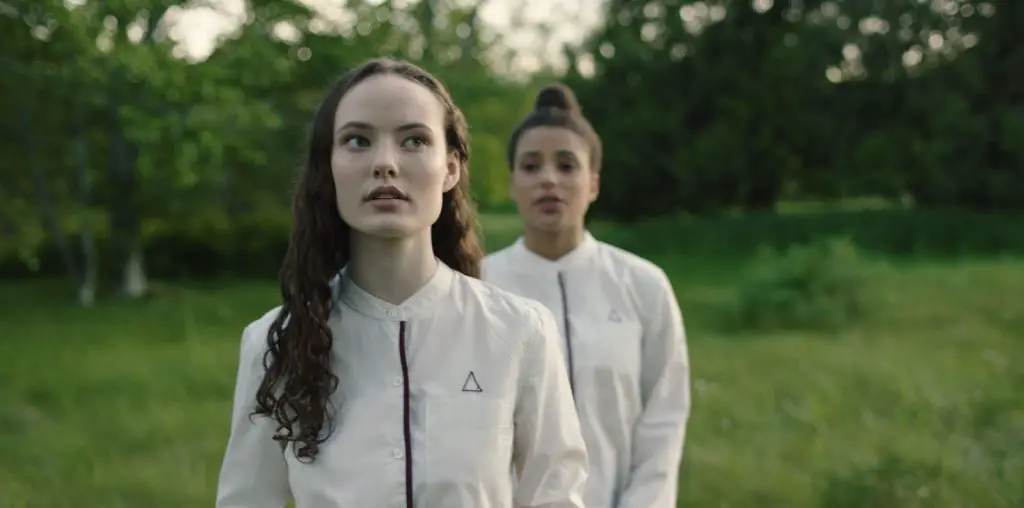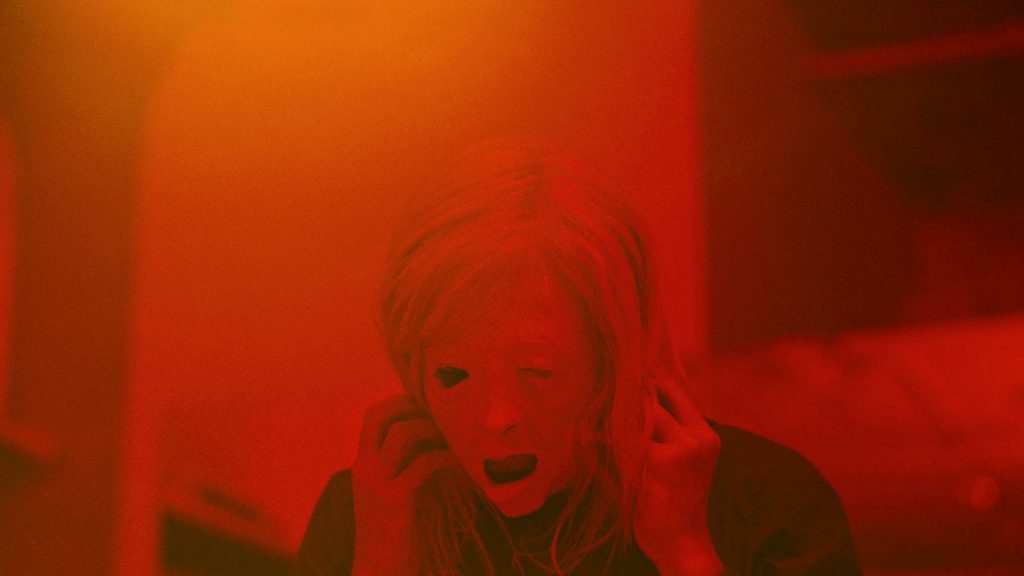
I haven’t even mentioned the Thought Visualizer, apparently invented by Greg, which does exactly what it claims to do. Nor did I bring up Emily’s quest to find her alienated dad via seedy motels and homeless shelters. As for the ending, wherein the two worlds collide, it’s a lens-flare-ridden spectacle I will definitely leave you to discover. A lot happens in Bliss, enough to fill an entire season of a show. At under two hours, it feels compressed and overbearing.
Parallels between The Matrix cannot be ignored. Like Neo, Greg discovers the world is an illusion, and with the help of a guide, learns how to manipulate it; down to the pill-taking and waking up with tubes up the nose, it weirdly harks back to the Wachowskis’ metaphysical action classic. Where The Matrix was sharp, Cahill takes wild, bold swings, which results in total tonal whiplash. Greg’s trajectory from a white-collar dreamer to a homeless person to some sort of blissful genius in utopia is jarring, to say the least. Sentiment is piled on thick, from genuine emotion to heightened mannerisms. For a while, the main tension stems from whether what Greg experiences is real or an illusion, but it’s weak – and then pounded into dust by headache-inducing exposition.

“…feels like a bunch of grandiose ideas in search of a connecting thread.”
But Bliss has its moments. The utopian world is well-depicted, a true visualization of a so-called “perfect” life, and a stark contrast to reality’s dreariness. Markus Förderer’s camerawork is magnificent. He swoops out of buildings and over boats and into character’s heads, instilling the production with a celestial vibe, a sense of a force of some sort, observing the proceedings. Hayek, sporting a thick mane of tangled black hair for a good chunk of the berserk narrative, has fun with her role. She effortlessly steals scenes from the usually charismatic Wilson, reduced to a mope, barely reacting to purportedly wondrous things.
As good as Hayek is, it’s a testament to her skills that she can deliver the following lines and make them somewhat believable: “The world is simply light bouncing around your neurons, it’s manufactured and malleable;” “I understand how you must feel, you killed the nice guy who let you wear the shorts;” “We have to go back into the brainbox, Greg” – and, my personal favorite – “Oh, put that brain boner away.” Some of it sounds like it was meant to be ridiculous, but the pompous moments make the genuine wit hard to discern. “Automation, synthetic biology, and asteroid mining,” indeed.
“Bliss is a state of mind that can only be achieved by understanding the contrast of the opposite state of mind.” This is an interesting thought. Bliss takes a stab at scrutinizing our collective vision of utopia. It argues that it’s just a vision, bland like Greg’s lifeless sketch and that the unpredictable nature of our messy lives is what makes them beautiful. Some nifty insights, ripe for exploration. Too bad the convoluted movie feels like a bunch of grandiose ideas in search of a connecting thread. Perhaps Cahill needs to reconnect with his indie roots to get his creative bliss back.

"…Cahill needs to reconnect with his indie roots to get his creative bliss back."


